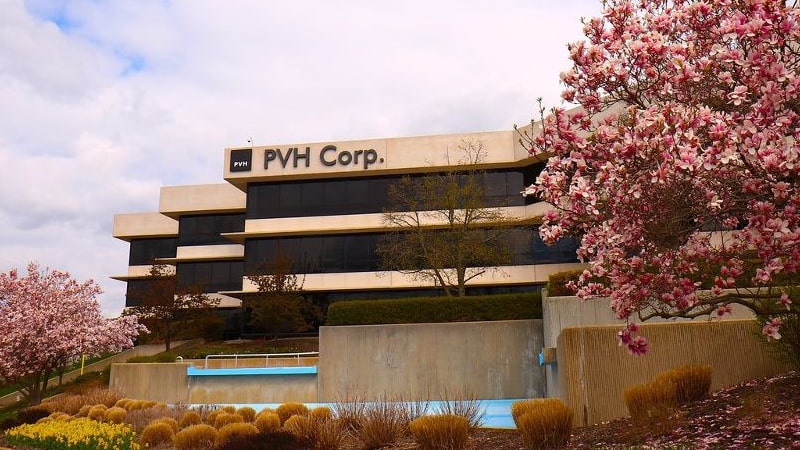
PVH Corp, the visionary force behind Calvin Klein and Tommy Hilfiger, is forging a dynamic path toward bolstering its climate commitments. This initiative seeks to incentivize suppliers, impelling them to embark on proactive measures while setting their own benchmarks for progress.
In its recently unveiled annual Corporate Social Responsibility (CSR) report, PVH Corp. demonstrated a series of momentous strides in the realm of climate accountability. The preceding year witnessed PVH undertaking its inaugural climate-risk scenario analysis, coupled with an augmentation of its carbon accounting capabilities. This empowered the company to glean profound insights into climate-related risks across its operations, thus enabling a more precise quantification of emissions reductions. Chief Sustainability Officer Rick Relinger expounded on these advancements, illuminating the company's proactive stance.
The bedrock of this strategy revolves around Scope 3 emissions, which encapsulate carbon footprints stemming from non-owned or operated facets of the supply chain. In a transformative step, PVH Corp. forged a strategic alliance with its suppliers, inviting them to formulate their own goals for greenhouse gas (GHG) emissions reduction while architecting actionable blueprints for attaining them. This audacious maneuver materialized into the launch of a pioneering supply chain financing program, facilitating manufacturers with preferential financing rates contingent on their sustainability performance.
Advancing Sustainability Through Emissions Mitigation and Supplier Empowerment
The linchpin of this endeavor is PVH's aspiration to mitigate Scope 3 emissions, constituting a staggering 97 percent of its total GHG footprint in the year 2022. Collaborative affiliations with prominent financial institutions such as HSBC, Standard Chartered, and DBS have now spawned a platform where suppliers are granted competitive access to capital. Their rates are intricately calibrated in consonance with their environmental and social performances. Elevated terms await those who set science-based targets, while concurrently ensuring the provision of secure and equitable work environments alongside just compensation and benefits.
Supplier progress is meticulously benchmarked against PVH's proprietary supply chain guidelines, fortified by the integration of industry-leading frameworks like the Social & Labor Convergence Program and the Higg Facility Environmental Module (Higg FEM). Notably, an impressive 89.6 percent of PVH's global suppliers have transcended the threshold of meeting the company's minimum standards for environmentally responsible sourcing. Simultaneously, the company has passionately championed the rights of workers, exemplified by its alignment with the Pakistan Accord, a commitment facilitating legally binding agreements between brands and trade unions to enhance worker safety.
PVH Corp.'s transformative endeavors extend beyond its supply chain to reverberate in its design decisions. Through comprehensive training sessions, over 800 design professionals worldwide have imbibed the ethos of environmentally conscious product design via the PVH Circular Design Framework. This innovative paradigm embraces factors like material efficiency, longevity, and end-of-life possibilities, all while emphasizing resource preservation.
A robust repertoire of frameworks including Textile Exchange's Preferred Fiber and Materials Matrix methodology, the Sustainable Apparel Coalition's Material Sustainability Index data, and Fashion for Good's technical insights converge to shape PVH's global framework for preferred material sourcing. This architectural blueprint provides PVH's product development teams with actionable intelligence, driving the proliferation of materials characterized by diminished environmental footprints.

Unveiling PVH's Eco-Focused Innovations: Material Evolution and Recycling Leadership
Central to PVH's metamorphic trajectory is its resolute endeavor to diversify away from conventional cotton and virgin polyester, instead embracing alternative materials such as hemp, as aptly illustrated by the Tommy Jeans line. Last year, 56 percent of the materials utilized were classified as environmentally preferred, marking a noteworthy escalation from 44 percent in the preceding year. Notably, cotton, which constitutes the lion's share of materials across product lines, witnessed 69 percent being categorized as environmentally preferred in 2022. Furthermore, 38 percent of polyester, along with 15 percent of viscose and 13 percent of wool, conformed to the company's framework for environmental preference.
PVH Corp.'s innovation sphere extends to textile recycling, with ingenious programs harnessing reclaimed fibers, yarns, and fabrics from its supply chains. Pioneering technologies like the Infinited Fiber Company's process, which metamorphoses cellulosic materials into novel fibers, have facilitated groundbreaking progress. Notably, the Tommy Hilfiger brand spearheaded the introduction of commercial shirts crafted from upcycled materials, embodying a harmonious blend of innovation and sustainability.
Partnerships with industry-leading entities like Renewcell and the Ellen MacArthur Foundation have galvanized PVH's thrust in textile-to-textile recycling. By following these progressive guidelines, PVH successfully developed 43,000 garments, further cementing its role as a visionary force in the sustainable fashion landscape. The company's vanguard also extends to water conservation, with the achievement of water usage and environmental health goals three years ahead of schedule in sourcing areas. Notably, PVH Corp. has made impressive strides in halting the flow of hazardous chemicals and microfibers from its wet processing facilities, an achievement poised to reach 100 percent by 2025.